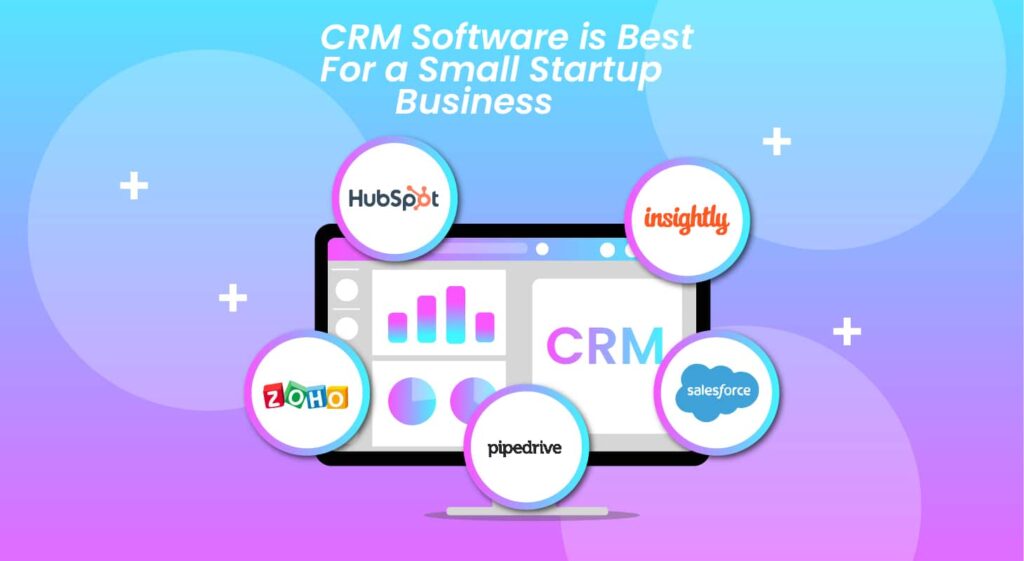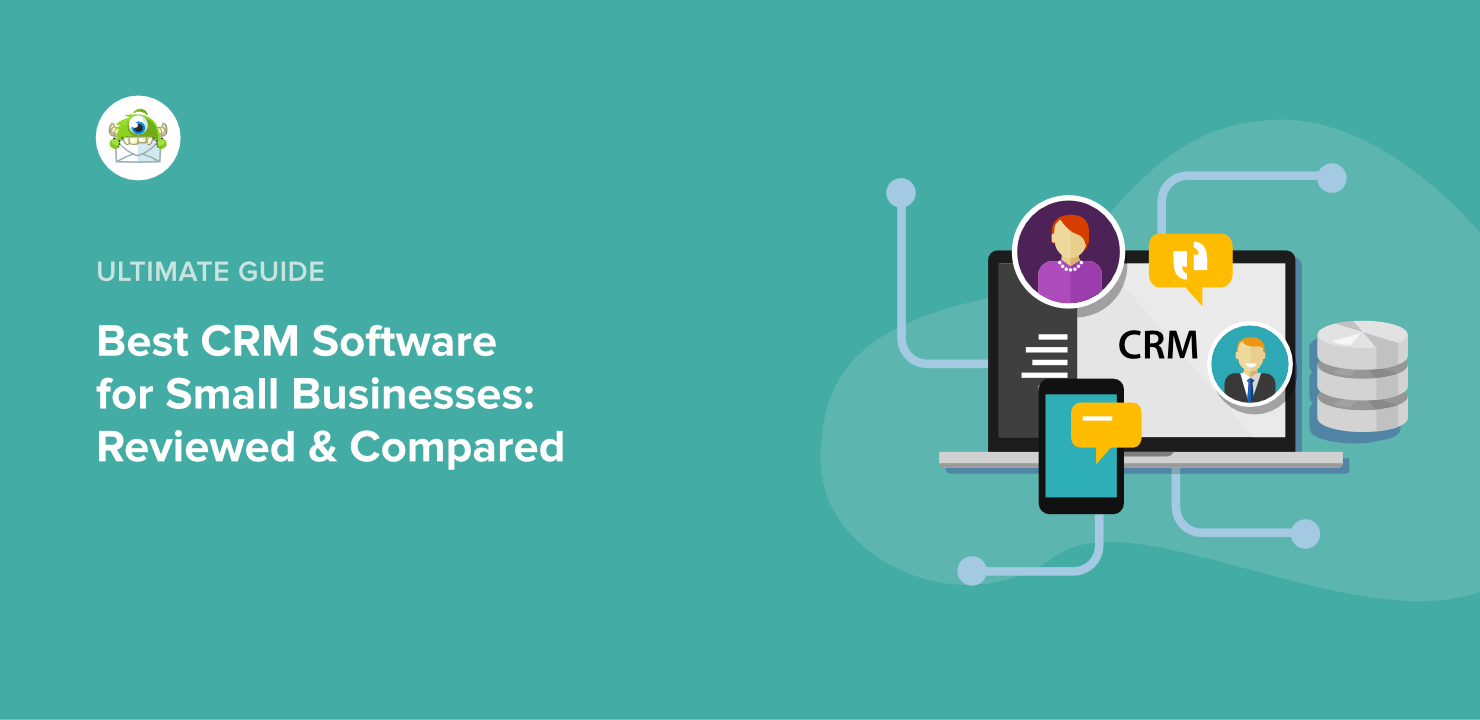Small Business CRM Innovations: Navigating the Future in 2025

Small Business CRM Innovations: Navigating the Future in 2025
The business landscape is constantly evolving, and for small businesses, staying ahead of the curve is crucial for survival and growth. Customer Relationship Management (CRM) systems have become indispensable tools in this endeavor, offering a centralized platform to manage interactions, track leads, and ultimately, boost sales. As we approach 2025, the innovations in CRM are poised to revolutionize how small businesses operate, providing unprecedented efficiency, personalized customer experiences, and data-driven insights. This article delves into the most significant CRM innovations expected to shape the future of small businesses, providing actionable insights and strategies for implementation.
The Evolution of CRM: From Data Storage to Strategic Partner
Before we dive into the future, it’s helpful to understand the evolution of CRM. Initially, CRM systems were primarily focused on data storage – collecting contact information and basic interaction details. Over time, they evolved to include sales automation, marketing campaign management, and customer service tools. Today, CRM systems are transforming into strategic partners, leveraging artificial intelligence (AI), machine learning (ML), and advanced analytics to provide predictive insights and personalized experiences. This evolution is driven by the need for businesses to understand their customers better, anticipate their needs, and deliver exceptional service to build brand loyalty.
Key Trends Shaping CRM in 2025
Several key trends are expected to dominate the CRM landscape for small businesses in 2025. These trends are not just about technological advancements; they also reflect a shift in business philosophy, prioritizing customer-centricity, data privacy, and operational efficiency.
- AI-Powered Automation and Personalization: AI will be deeply integrated into CRM systems, automating repetitive tasks such as data entry, lead scoring, and email marketing. Furthermore, AI will enable hyper-personalization by analyzing customer data to tailor interactions, product recommendations, and content.
- Enhanced Data Analytics and Predictive Insights: CRM systems will leverage advanced analytics and machine learning to provide predictive insights into customer behavior, sales trends, and market opportunities. This will empower small businesses to make data-driven decisions, optimize marketing campaigns, and proactively address customer needs.
- Improved Integration and Interoperability: CRM systems will seamlessly integrate with other business tools, such as accounting software, e-commerce platforms, and social media channels. This integration will streamline workflows, eliminate data silos, and provide a unified view of the customer journey.
- Emphasis on Data Privacy and Security: With increasing concerns about data privacy, CRM providers will prioritize security and compliance with regulations such as GDPR and CCPA. This will involve robust security measures, data encryption, and transparent data management practices.
- Mobile-First CRM Solutions: Mobile CRM solutions will become even more critical, allowing small business owners and employees to access customer data, manage leads, and interact with customers on the go. This will enhance productivity and responsiveness, particularly for businesses with field sales teams or remote workers.
Specific CRM Innovations to Watch in 2025
Let’s explore some specific CRM innovations that are expected to make a significant impact on small businesses in 2025:
1. AI-Driven Chatbots and Virtual Assistants
Chatbots and virtual assistants powered by AI will become more sophisticated and integrated into CRM systems. These AI-driven tools will be capable of handling a wide range of customer interactions, from answering basic inquiries to providing personalized product recommendations and resolving common issues. This will free up human agents to focus on more complex tasks, improving customer service efficiency and satisfaction.
Benefits:
- 24/7 customer support
- Reduced response times
- Improved customer satisfaction
- Cost savings on customer service operations
2. Predictive Lead Scoring and Sales Forecasting
CRM systems will leverage machine learning algorithms to analyze customer data and predict the likelihood of a lead converting into a customer. This predictive lead scoring will enable sales teams to prioritize their efforts on the most promising leads, improving conversion rates and sales efficiency. Furthermore, advanced analytics will provide more accurate sales forecasts, helping businesses to plan their resources and make informed decisions.
Benefits:
- Higher conversion rates
- Improved sales efficiency
- More accurate sales forecasting
- Better resource allocation
3. Hyper-Personalized Marketing Automation
CRM systems will enable hyper-personalized marketing campaigns by analyzing customer data to tailor messaging, content, and product recommendations. This will involve segmenting customers based on their behavior, preferences, and demographics, and delivering personalized experiences across multiple channels, including email, social media, and website. This level of personalization will improve engagement, drive conversions, and build brand loyalty.
Benefits:
- Increased customer engagement
- Higher conversion rates
- Improved brand loyalty
- More efficient marketing spend
4. Advanced Customer Segmentation and Behavior Analysis
CRM systems will provide advanced tools for customer segmentation and behavior analysis, allowing small businesses to gain a deeper understanding of their customer base. This will involve analyzing customer interactions, purchase history, website activity, and social media engagement to identify customer segments, understand their needs, and tailor marketing and sales strategies accordingly. This granular understanding of customer behavior will enable businesses to deliver more relevant and personalized experiences.
Benefits:
- Deeper customer understanding
- More targeted marketing campaigns
- Improved customer retention
- Enhanced customer lifetime value
5. Integration with Emerging Technologies
CRM systems will integrate with emerging technologies such as the Internet of Things (IoT) and augmented reality (AR) to provide innovative customer experiences. For example, IoT devices can provide real-time data on product usage, enabling businesses to proactively offer support and recommendations. AR can be used to create immersive product demos and personalized shopping experiences. This integration will help small businesses stay at the forefront of innovation and differentiate themselves from the competition.
Benefits:
- Innovative customer experiences
- Enhanced customer engagement
- Differentiation from competitors
- New revenue opportunities
Choosing the Right CRM for Your Small Business in 2025
Selecting the right CRM system is a critical decision for any small business. With so many options available, it’s essential to evaluate your needs and choose a solution that aligns with your goals and budget. Here are some key factors to consider when choosing a CRM in 2025:
- Ease of Use: The CRM system should be user-friendly and intuitive, with a simple interface and easy-to-learn features.
- Scalability: The CRM should be able to scale as your business grows, accommodating increasing data volume and user numbers.
- Integration Capabilities: The CRM should seamlessly integrate with other business tools, such as your accounting software, e-commerce platform, and marketing automation tools.
- Mobile Accessibility: The CRM should offer robust mobile accessibility, allowing your team to access customer data and manage leads on the go.
- Data Security and Privacy: The CRM provider should prioritize data security and comply with relevant privacy regulations.
- Pricing and Value: The CRM should offer a pricing plan that fits your budget and provides good value for the features and functionality offered.
- Customer Support: The CRM provider should offer responsive and helpful customer support.
Tips for Implementation:
- Define your goals: Before implementing a CRM, clearly define your business goals and how the CRM can help you achieve them.
- Choose the right CRM: Research and compare different CRM solutions to find the one that best fits your needs.
- Plan your implementation: Develop a detailed implementation plan, including data migration, user training, and system customization.
- Train your team: Provide comprehensive training to your team on how to use the CRM effectively.
- Monitor and optimize: Regularly monitor the performance of your CRM and make adjustments as needed to optimize its effectiveness.
The Impact of CRM Innovations on Small Business Success
The CRM innovations discussed above are poised to have a profound impact on the success of small businesses in 2025. By embracing these technologies, small businesses can:
- Improve Customer Relationships: CRM systems will enable small businesses to build stronger relationships with their customers by providing personalized experiences and proactive support.
- Increase Sales and Revenue: CRM systems will help small businesses to identify and nurture leads, improve conversion rates, and ultimately, increase sales and revenue.
- Enhance Efficiency and Productivity: CRM systems will automate repetitive tasks, streamline workflows, and improve collaboration, freeing up employees to focus on more strategic activities.
- Gain a Competitive Advantage: By leveraging the latest CRM innovations, small businesses can differentiate themselves from the competition and gain a competitive edge in the market.
- Make Data-Driven Decisions: CRM systems will provide valuable data and insights, enabling small businesses to make informed decisions and optimize their business strategies.
Challenges and Considerations
While the future of CRM for small businesses looks bright, there are also challenges and considerations to keep in mind:
- Cost: Implementing a CRM system can be a significant investment, so small businesses need to carefully consider their budget and choose a solution that offers good value.
- Data Migration: Migrating data from existing systems to a new CRM can be a complex process, requiring careful planning and execution.
- User Adoption: Getting employees to adopt a new CRM system can be a challenge, so it’s essential to provide adequate training and support.
- Data Security and Privacy: Small businesses need to prioritize data security and comply with relevant privacy regulations to protect customer data.
- Staying Up-to-Date: The CRM landscape is constantly evolving, so small businesses need to stay up-to-date on the latest innovations and trends.
Conclusion: Embracing the Future of CRM
The CRM landscape for small businesses is undergoing a significant transformation, driven by innovations in AI, data analytics, and integration. By embracing these advancements, small businesses can gain a competitive advantage, improve customer relationships, and drive sales growth. As we approach 2025, small businesses that invest in the right CRM solutions and strategies will be best positioned to thrive in the dynamic business environment. The key is to understand your business needs, choose a CRM that aligns with those needs, and implement it effectively. The future is customer-centric, data-driven, and automated, and CRM is at the heart of it all. By proactively embracing these innovations, small businesses can not only survive but thrive in the years to come.


